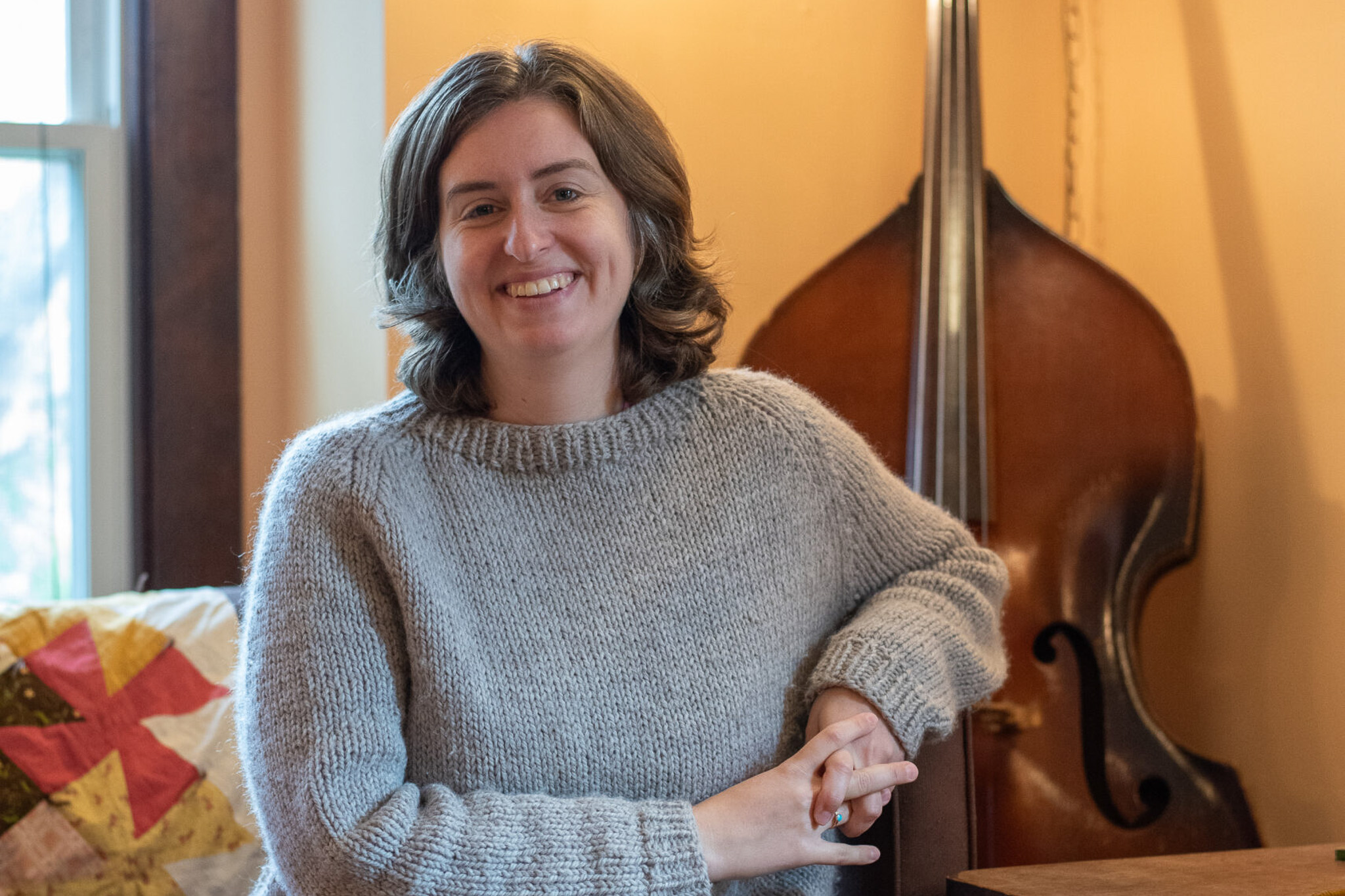Sadie Gustafson-Zook, a singer-songwriter from Goshen, spends most of her time in her home office — a room that used to be her bedroom back in college, when the small red house was college housing.
Now, she’s transformed her old bedroom into a home studio, complete with recording equipment, instruments and goals on a bulletin board labeled “goals,” “schemes” and “plans.” South-facing windows let in natural light as she works at a desk left over from some college student years before.“I started really early,” Gustafson-Zook said. “My family was Mennonite, so we were singing a lot in church. I don’t really have memories of not making music.”
When she was 6, Gustafson-Zook took the leap into performing, playing fiddle and singing with her parents at local gigs.
“I don’t remember being nervous,” Gustafson-Zook said. “I liked the attention of being on stage, but I wasn’t sure if I liked performing with my parents.”
When she was in elementary school, her father, Les — a two-time international autoharp champion — took her busking at the farmer’s market. Later, he took her busking at the Mennonite Convention, where she made $200 in 30 minutes.
“There was a little spark of, oh, you can make money,” she said. “I never really heard the story of ‘don’t be a musician because you won’t be able to survive.’”
In 2010, as a highschooler, Gustafson-Zook released her first album of all cover songs. After receiving her undergraduate degree in vocal performance from Goshen College, she headed to Cambridge, Massachusetts, to study jazz and contemporary music at the Longy School of Music of Bard College.
“I was a little blindsided into getting a degree in jazz,” Gustafson-Zook laughed. “I don’t really like music theory, but I like jazz theory and how it could apply to my music.”
While in Cambridge, Gustafson-Zook took up a job at a local folk music venue and started making connections with other singer-songwriters in the area.
“I got a job working the box office and then ran sound and then waited tables,” Gustafson-Zook said. “All of the other people working there were singer-songwriters who needed a flexible job and wanted to hang out with other singer-songwriters.”
For Gustafson-Zook, this is just a small example of the community that surrounds folk music.
“The emphasis on community felt like it really resonated with me,” Gustafson-Zook said. “It doesn’t feel that competitive. It just feels like if your friends are doing well, that’s great because then you’re friends with someone who’s doing well and then maybe at some point that will help you.
“That’s not the point,” she continued. “The point is to be a nice, good person who’s sharing their life.”
For Gustafson-Zook, going to graduate school in the Northeast was a good way for her to find that community, but she made it clear she could have easily found the community without school.
When asked if she would do graduate school all over again, she confidently answered “No, I would just move to Boston.”
After graduate school, Gustafson-Zook has moved around quite a bit, spending time in Boston, Nashville, New York and Seattle. She moved into her old college house in January of this year.
When she played at Goshen Brewing Company a few weeks ago, her songs included reflections on her childhood. Gustafson-Zook told “stories about having crushes on all the gay guys in high school.
“There were these two gay guys that I was so into for all of elementary and middle school and mostly high school, and the parents were there, and I was like, ‘yeah, this song is essentially about them.’”
Luisa Dutchersmith, a junior elementary education TESOL major, grew up with Gustafson-Zook and recalls being inspired by her from a young age.
“She inspires me to do what I want to do with music,” Dutchersmith said. “Seeing someone who did a lot of the same things as me, it’s cool to see what she’s done.”
Gustafson-Zook recently had a small concert in a local backyard. Maddie Bollinger, a junior elementary education major with a music minor, came away very impressed.
“Her lyrics are awesome,” Bollinger said. “I was really impressed and enamored with her and her writing abilities.”
For Gustafson-Zook, song inspiration comes from emotional content she gathers in her life.
“I usually start with an internal sense of unrest,” Gustafson-Zook laughed. “And something needs to come out.”
Where others might go for a run, Gustafson-Zook puts pen to paper, or thumbs to Notes app, and jots down lyrics, pairing them with a guitar riff or set of chords as she pulls the song together.
Inspiration can include anything from a TV show to a squirrel that recently exploded in her alley after it bit a transformer.
“I was just comfortable in my own home,” she recalled. “And then there was an explosion and … then there’s a squirrel on the ground who’s totally serene looking but charred.”
Gustafson-Zook went on to describe the song inspired by that moment, which reflects on the way human activity affects animals, who were there first.
Folk music is a way for Gustafson-Zook to share her own stories, though, and as she’ll admit, not everyone will take the same thing away from a song.
“Just because I know that a song is about someone doesn’t mean that everybody who’s listening is going to assume it’s about their gay sons.”




